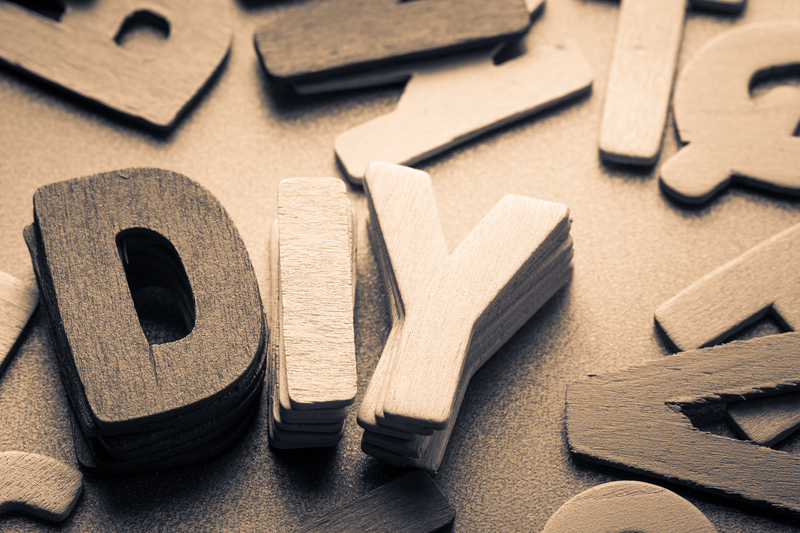Practical Advice for Households on PPE Waste Disposal
Personal Protective Equipment (PPE) like face masks, gloves, wipes, and face shields have become part of daily life in households worldwide. While essential for health and safety during disease outbreaks, inappropriate disposal of PPE waste can harm the environment and pose risks to community health. This comprehensive guide provides practical and effective advice for families and individuals seeking to manage PPE waste responsibly at home.
Why Proper PPE Waste Disposal Is Critical
The surge in PPE usage, especially during pandemics, has led to an alarming increase in non-biodegradable household waste. When discarded incorrectly, used masks and gloves can:
- Spread pathogens, endangering sanitation workers and the community.
- Pollute water bodies and wildlife habitats, as PPE often ends up in public spaces and waterways.
- Contribute to growing landfill and marine plastic pollution.
Understanding and implementing best practices for PPE disposal at home is not just about keeping your space clean -- it's a collective responsibility for public health and the environment.

Types of Household PPE and Their Environmental Impact
To dispose of PPE waste correctly, you need to identify the different types of PPE commonly used at home:
- Single-use face masks (surgical masks)
- Reusable fabric masks
- Disposable gloves (latex, vinyl, nitrile)
- Face shields and safety goggles
- Antibacterial wipes and tissues
Most single-use PPE items are made from non-biodegradable materials such as polypropylene, a type of plastic. Left in the environment, they take decades or even centuries to break down, while releasing microplastics and toxins. Biodegradable alternatives exist, but they must still be disposed of carefully to prevent disease spread.
Practical Steps for Safe PPE Waste Disposal
1. Prepare a Dedicated PPE Waste Bin
Designate a separate, lidded bin lined with a strong plastic bag just for used PPE within your household. This reduces direct contact and cross-contamination with other household waste.
- Keep it away from food storage and preparation areas.
- Label the bin clearly: ‘PPE Waste Only’
- Encourage everyone in the home to use it and sanitize hands after disposing of PPE.
2. Always Handle PPE Waste with Care
Handling used face masks, gloves, and wipes with care can prevent disease transmission.
- Never reuse single-use masks or gloves.
- Remove PPE by grasping the straps, avoiding contact with the front surface.
- Do not shake used masks or gloves to minimize the spread of contaminants.
- Wash or sanitize your hands immediately after handling or disposing of PPE.
3. Double-Bag PPE Waste If Illness Is Present
If you or anyone in your household is experiencing symptoms of a contagious disease or required to self-isolate, follow this enhanced protocol:
- Place all used PPE and personal waste like tissues into a plastic bag.
- Double-bag by placing the filled bag into a second, clean bag.
- Seal both bags tightly, then store in a secure location for at least 72 hours (3 days), away from direct contact.
- After 72 hours, dispose of the double-bagged waste with your regular household garbage (not recycling).
4. Do NOT Recycle Used PPE
Never place used masks, gloves, or wipes in recycling bins. These items:
- Cannot be processed by regular recycling facilities.
- Risk contaminating batches of recyclable materials.
- Increase exposure risks for recycling center staff.
Always treat used PPE as general (residual) waste.
5. Wash and Reuse When Possible
For reusable cloth face masks, proper care can both save money and reduce waste volume:
- Wash masks regularly in hot water (at least 60?C / 140?F) with detergent.
- Dry thoroughly before using again.
- Never attempt to wash or disinfect single-use masks or gloves for reuse.
Switching to high-quality reusable PPE can be a more sustainable option for households.
6. Avoid Flushing PPE Down Toilets
PPE such as masks, gloves, and wipes can quickly clog household plumbing and municipal wastewater systems. Always dispose of these items in a trash bin -- never flush them!
Alternatives and Reducing PPE Waste at Home
Reducing your reliance on single-use PPE at home helps both the environment and your family's budget. Consider the following strategies:
- Use reusable, washable masks where appropriate, following health authority advice.
- Adopt proper handwashing and physical distancing to reduce the need for disposable gloves.
- Choose biodegradable wipes or tissues (dispose of even these in the trash unless packaging specifies compostability).
Proper Storage of Unused PPE
Store masks and gloves in a dry, clean place away from moisture and sunlight. Prevent contamination by keeping unused PPE in original packaging or clean containers until needed.
Community and Environmental Considerations
Hazards of Littered PPE
Littering PPE waste endangers animals, clogs storm drains, and degrades community aesthetics. Discarded masks and gloves in public spaces can be ingested by wildlife or contribute to flooding and pollution. Make sure all household PPE waste is bagged and secured before collection day.
Support Local PPE Waste Initiatives
Some communities offer special PPE waste collection services, drop-off points, or guidance for safe disposal. Check your local authority’s website for up-to-date instructions. Participating in community efforts helps reduce the environmental impact of PPE waste and protects sanitation workers.
PPE Waste Disposal FAQs for Households
Can PPE be composted or burned at home?
No! Do not compost or burn used PPE at home.
Composting PPE risks contaminating your compost with synthetic fibers and pathogens. Burning at home releases hazardous fumes and is unsafe. Only dispose of PPE waste as regular household trash.
Can I donate unused PPE?
If you have sealed, unused PPE in bulk, consider reaching out to local shelters, clinics, or charities in need. Contact them to confirm what types and supplies are accepted.
How do I keep my bin hygienic?
- Use liners: Change bin liners regularly, especially if contaminated PPE has been thrown inside.
- Disinfect: Clean your PPE waste bin with household disinfectant or a bleach solution weekly.
- Seal tightly: Ensure bags are securely sealed before removing them from your home for collection.
Is there a safer time to put PPE waste out for collection?
Whenever possible, put PPE waste out the night before or on the morning of collection. This minimizes the risk of animals or weather scattering waste and reduces exposure time in public areas.
Are there special instructions for families with children?
- Teach children not to touch used masks or gloves found outside or at home.
- Explain the importance of proper PPE disposal in protecting family and community health.
- Supervise children when discarding their own used PPE.

Long-Term Solutions: Rethinking PPE Use at Home
While household PPE use may decline between outbreaks, it's wise to plan ahead for future needs. To minimize environmental impact:
- Stock up thoughtfully to avoid excess purchases that may expire.
- Stay informed about new biodegradable or recyclable PPE types.
- Engage with local policy initiatives to support responsible community-wide PPE disposal.
Eco-Friendly Innovations in PPE
Manufacturers are developing sustainable PPE options such as biodegradable masks and gloves, and recycling programs for certain types of PPE waste. Monitor trusted environmental and health sources for updates and consider switching as new products that meet safety standards emerge.
Conclusion: Your Role in Responsible PPE Waste Disposal
By following practical advice on PPE waste disposal at home, your household protects both community well-being and the natural environment. Correctly disposing of used masks, gloves, and wipes prevents disease spread, reduces pollution, and sets a positive example for neighbors and children. Stay updated with local guidance, choose reusable products where safe, and minimize what you send to landfill when possible. Together, even small actions make a significant difference.
Further Resources
Remember, practical PPE waste disposal is every household's duty. Stay safe, protect others, and look after our planet -- one mask at a time.
